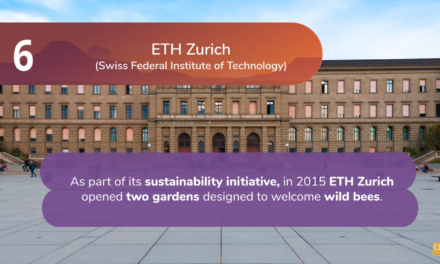
Some argue that by going vegan, universities could help to tackle climate change.

Climate change is a pressing issue and reducing our carbon footprint can have a big impact. By going vegan, universities could reduce their animal-based consumption significantly, making a significant contribution to mitigating the effects of climate change.
The Environmental Working Group (EWG) report that switching to a vegan diet saves up to one-fifth of the CO2 emissions produced by eating meat and dairy products. The report also states that plant-based foods are healthy and can help prevent obesity, heart disease, some types of cancer, and other chronic diseases.
VEGANISM VS. DAIRY PRODUCTS
There is a lot of confusion around veganism and dairy products. To be clear, veganism excludes all animal-based products, including eggs, milk, cheese, and other mammalian products. Dairy products are made from milk that has been curdled with rennet. This process results in the formation of casein – a type of protein found in milk – which is unique to mammals only. Therefore, a vegan diet includes no animal-based dairy products.
While there are some plant-based milks available on the market that mimic the texture and flavor of cow’s milk, they are not considered true dairy alternatives because they do not contain casein or other essential nutrients found in cow’s milk. Consequently, vegans who consume these beverages should also eat foods containing casein (such as cheese) to ensure they are getting all the nutrients their body needs.
VEGANISM VS MEATS
Many people mistakenly believe that being vegan means excluding all forms of meat from your diet – this is not the case! Veganism simply refers to excluding animal-based products from your daily routine. So while you can still enjoy meats like chicken, beef jerky, bacon, etc., you don’t have to rely exclusively on these animal-free items to get your protein needs met.
The truth is that a varied vegan diet will provide you with all the essential nutrients your body needs – including protein – so long as you include enough nutritious fruits and vegetables in your meals. In fact, one study published in The Journal of Nutrition found that participants who followed a plant-based diet rich in fruits and vegetables had lower levels of blood cholesterol than participants who ate a traditional American diet high in saturated fat and cholesterol.[1]
REDUCING YOUR IMPACT ON THE ENVIRONMENT
When it comes to climate change, reducing our carbon footprint is key – whether we’re talking about individual actions or larger systemic changes like going vegan. A 2015 study published in Climatic Change determined that livestock production is one of the largest sources of greenhouse gas emissions worldwide.[2] Production from livestock accounts for 18 percent of human-caused greenhouse gas emissions,[3] which makes going vegetarian or even adopting a more sustainable approach like reduction vegetarianism more impactful when it comes to mitigating climate change effects than following an omnivorous diet.
So what does this mean for universities? According to EWG research*, switching just 1 percent of American college students to a plant-based diet could save nearly 2 million metric tons (2 billion pounds) of greenhouse gas emissions over a decade, the equivalent of taking 570,000 cars off the road.
Based on these findings and others like them, it’s no surprise that some argue that by going vegan, universities could help to tackle climate change. A study published in The Conversation earlier this year found that “veganism has a large potential to reduce [carbon dioxide] emissions and help mitigate climate change.”[4]
There are many benefits to adopting a vegan lifestyle, not least of which is reducing your impact on the environment. So if you’re looking to do your part in mitigating climate change, switching to a plant-based diet is one way to start.
The University of Cambridge announced last week that it has removed beef and lamb from its food offerings at its 14 outlets and 1,500 annual events, resulting in a 33% decrease in food-related carbon emissions since 2016.
Goldsmiths University of London has announced that it will remove all beef products from sale on campus due to the large quantity of methane that cows produce, contributing to carbon emissions.
In London, the University of Westminster encourages students to switch to meat-free options by offering a “part time carnivore loyalty card.” The University of East Anglia, Ulster University, and some colleges at the University of Oxford also all participate in meat-free Mondays.
The University of North Texas has a 100% vegan dining hall on campus. This dining hall is A-plus rated by peta2 and has been awarded five consecutive years. The cafeteria also grows lettuce hydroponically, which is used in the meals served at the school.
Northwestern University is committed to providing food that is both sustainable and vegetarian-friendly. Every dining hall offers a vegan meal option for breakfast, lunch, and dinner, as well as Meatless Monday initiatives. Sustainability is a key part of the school’s mission statement, so most of the food on campus comes from local farms to reduce waste and conserve resources.
At UCSD, there are a number of dining halls, cafés, pubs, and food markets that make it easy for vegan and vegetarian students to get their meals.
Universities can make a significant difference in the fight against climate change by educating their students about the issue. By going vegan, universities could help to reduce the amount of animal-based products that are used and help to create a more sustainable planet.
























